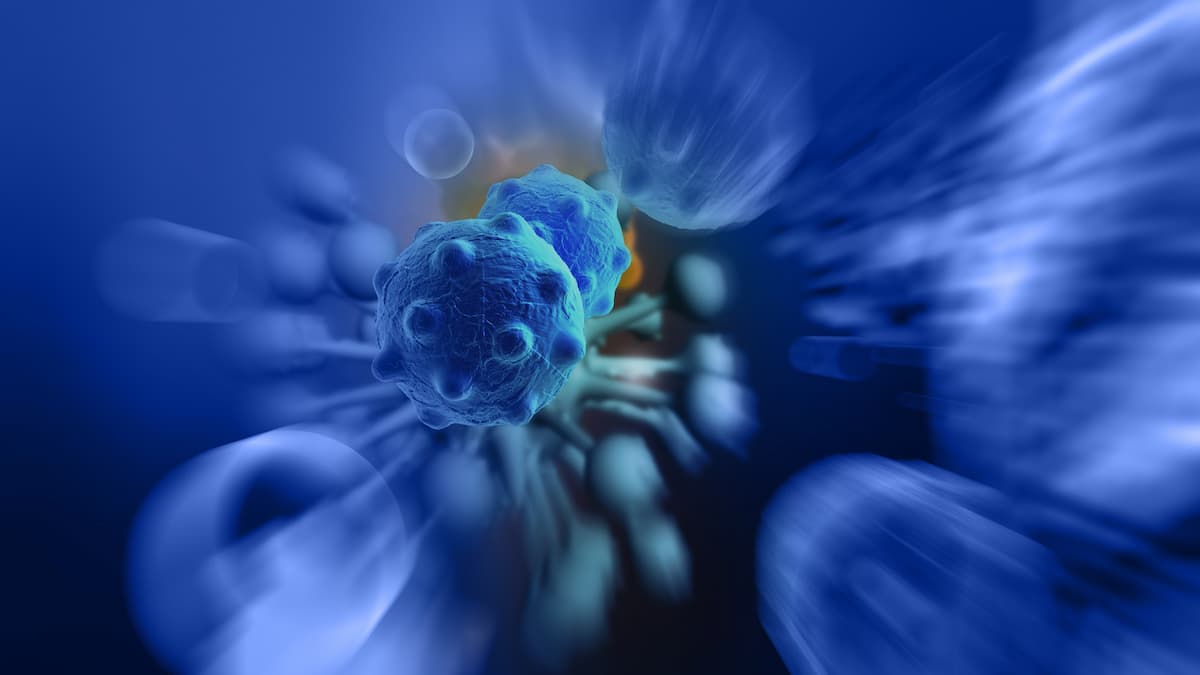EMA Accepts Marketing Application for Linvoseltamab in R/R Multiple Myeloma
Findings from the phase 1/2 LINKER-MM1 trial support the marketing authorization application for linvoseltamab in the management of relapsed/refractory multiple myeloma.
Supporting data for the MAA in this indication came from the phase 1/2 LINKER-MM1 trial (NCT03761108) evaluating linvoseltamab in patients with relapsed/refractory multiple myeloma.

The European Medicines Agency (EMA) has accepted a marketing authorization application (MAA) for linvoseltamab as a treatment for adult patients with relapsed/refractory multiple myeloma, according to a press release from Regeneron Pharmaceuticals, Inc.1
Specifically, the indication includes those with disease progression following 3 or more prior lines of treatment. Linvoseltamab, an investigational bispecific antibody, is designed to employ CD3-expressing T cells for bridging B-cell maturation antigen (BCMA) expressed on multiple myeloma cells, thereby yielding T-cell activation and cancer cell death.
Supporting data for the MAA in this indication came from the phase 1/2 LINKER-MM1 trial (NCT03761108) evaluating linvoseltamab in patients with relapsed/refractory multiple myeloma. According to previously published data, a 200 mg dose of linvoseltamab produced an objective response rate (ORR) of 71% among 117 evaluable patients based on an independent review committee (IRC) assessment after a median follow-up of 11 months.2 Additionally, a complete response (CR) or better was highlighted in 46% of patients. After at least 24 weeks of treatment, patients with a very good partial response (VGPR) or better switched from dosing every 2 weeks to every 4 weeks.
Any-grade and grade 3 or higher adverse effects (AEs) at the 200 mg dose level, respectively, affected 100% and 85% of patients. Cytokine release syndrome (CRS) occurred in 46% of patients, which mostly consisted of grade 1 toxicity (35%). Any-grade adjudicated immune effector cell-associated neurotoxicity syndrome (ICANS) was reported in 8% of patients, with 3 patients having grade 3 toxicity.
Investigators highlighted any-grade infections in 73% of patients, with grade 3/4 instances affecting 34%. Additionally, 12% of patients died due to treatment-emergent AEs (TEAEs) during treatment or within 30 days of receiving their final dose; investigators attributed 9% of these deaths to infections.
“Multiple myeloma remains an incurable disease, in which patients have cycles of relapse and remission, resulting in a critical need for innovative medicines,” L. Andres Sirulnik, M., PhD, senior vice president of Translational and Clinical Sciences, Hematology at Regeneron, said in a press release on these findings.2 “With longer follow-up data on linvoseltamab, we’re seeing deep and durable responses with a [CR] rate nearing 50% in a difficult-to-treat patient population who had received a median of 5 prior lines of therapy….This regimen saved time for clinicians and patients, underscoring the potential for linvoseltamab as a patient-centric option in relapsed/refractory multiple myeloma.”
The ongoing, open-label, multi-center LINKER-MM1 trial is evaluating linvoseltamab among patients who had received 3 or more prior lines of therapy or were triple refractory. Investigators administered study treatment using a step-up dosing regimen intended to help manage CRS.
The trial’s primary end points include dose-limiting toxicities, TEAEs, AEs of special interest, ORR based on IRC assessment, and CRS. Secondary end points include duration of response, progression-free survival, overall survival, health-related quality of life, and patient-reported global health status.
Patients 18 years and older with response-evaluable multiple myeloma based on 2016 International Myeloma Working Group criteria and an ECOG performance status of 0 or 1 were able to enroll on the trial. Additional eligibility criteria included having disease progression following at least 3 prior lines of treatment including a proteasome inhibitor, immunomodulatory drug, and an anti-CD38 antibody.
Developers previously submitted a biologics license application to the FDA for linvoseltamab as a treatment for those with relapsed/refractory multiple myeloma in December 2023.1 Additionally, investigators plan to assess the agent as part of the confirmatory phase 3 LINKER-MM3 trial (NCT05730036), which is currently open for patient enrollment.
References
- Linvoseltamab receives EMA filing acceptance for treatment of relapsed/refractory multiple myeloma. News release. Regeneron Pharmaceuticals, Inc. February 2, 2024. Accessed February 2, 2024. http://tinyurl.com/4k32t22e
- Updated linvoseltamab pivotal data demonstrated strong rates and depth of response in patients with heavily pre-treated multiple myeloma. News release. Regeneron Pharmaceuticals, Inc. December 7, 2023. Accessed February 2, 2024. http://tinyurl.com/3n7mvyk8
Relapsed/Refractory Multiple Myeloma Trial Updates From ASCO 2023
August 7th 2023Experts from Mayo Clinic and The University of Texas MD Anderson Cancer Center discuss results from multiple myeloma trials presented at the 2023 American Society of Clinical Oncology Annual Meeting and how they may apply to clinical practice.